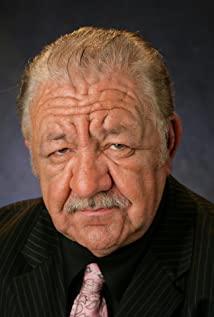episode 1
After watching the first episode of "Rocky", I summarized 20 practical spoken expressions~ (by the way, help the subtitles group to correct a few mistakes)
Episode 2
The second episode's brain burn level is higher than that of the first episode. I believe that Rocky's ratings will set a new high for Marvel's independent dramas in the future! Not much nonsense, let's first look at the oral expressions that are worth learning in this episode, and practice English while watching the drama. Most of the dialogue in the play takes place in the office, and the overall atmosphere is relatively more literary, so most of the dialogue we see in the play is more elaborate, which is very suitable as a preparation material.
1 Be about to commence
Commencement means start, which is equivalent to begin/start, but it is more formal than the latter. Often used for the beginning of a conference/semester example: The academic year commences at the beginning of October.
2 Will evil prevail, or are we holding out for a hero? Will evil prevail, or are we holding out for a hero?
There are two language points in this sentence: prevail & hold out for
1) Prevail often means popular and universal. By extension, it can be understood as being invincible, conquering, suppressing, and persuading. When this word is used to replace other synonyms, it often has unexpected effects in spoken language. Example: i. an ancient tradition that still prevails (if you replace it with still exists, will there be less flavor?) ii. It's hard for logic to prevail over emotion. Reason is difficult to overcome emotions (also can be replaced by beat And other synonyms, but less feeling)
2) Hold out for... without compromise. The English explanation is to abandon the existing choices in order to wait for a more beneficial/favorable option or person. It often takes a lot of effort to get the person or thing that you insist on.
3 gear up ready
The original intention of gear up is to promote, increase, and prepare for..., the subtitles are paraphrased as wearing clothes. If you want to express that you are ready in spoken language, don't just say get ready, you can also use gear up to replace it.
4 ambush
The original intention of ambush is that the army prepares to ambush in a hidden place. It is used more for military purposes, but it can also be used to express tension in ordinary dialogue.
Example: She was ambushed by reporters.
5 (cards) on the table openly speaking, openly
The term (cards) on the table is mentioned twice in the second episode. This phrase is derived from the poker game, which means a showdown and can be honest. The phrase with the same meaning also has above board, the source is the same as (cards) on the table.
6 up his game gets worse
In most people's impression, up is the meaning of prepositions/adjectives/adverbs above, but up itself can also be used as a verb. For example, the host of up at station b can be understood as the host of the uploaded video~
As a verb, up emphasizes a sudden change. I didn't expect it before. As mentioned in the play, Rocky suddenly started to take hostages, so it is very suitable to use up.
In addition, up has the meaning of nouns, and the familiar ups and downs (rising and falling, ups and downs) are its noun usage.
7 spruce up
The noun spruce means spruce, and spruce itself is tall and beautiful, so it is used as a verb to dress up and beautify. At the same time, spruce can also be used as an adjective, which stands for neatness. The word is used as a model!
8 botch
The original intention of botch is to mess up, shoddy work. Synonyms include ruin/screw up/wreck, etc., and learn synonymously.
9 have a soft spot for
Soft spot is literally translated in Chinese as a soft spot, which can also be understood as a soft spot. At the same time, a person's soft spot is often the person or thing he likes, so have a soft spot for can also be used as a liking... understand, I want to express my liking next time Don’t just use I like for anything.
10 charm your way
The common usage of charm is a noun, but in fact it can also be used as a verb, meaning to please/fascinate with charm.
Example: You can't force–or even charm–him into behaving differently if he doesn't want to.
11 so on and so forth and so on, and
In spoken language, so on and so forth are often used to express that the examples are not exhaustive, and so on. They are also very vivid to understand. Both on and forth can mean the front. Adding the literal translation of so means that there are many more in front.
12 obliterate
Obliterate means to eliminate, forget. It is also a fantasy drama, and the friends who are watching Rocky believe that most people have also seen Harry Potter. In Harry Potter, Hermione cast an oblivion spell on them in order to protect their parents. Obliviate can be seen as a transformation of obliterate. Now everyone has learned both magic and English words.
13 take sb for a stroll take someone out for a stroll/much less not to mention
There are also two knowledge points in this sentence.
1) Nowadays, people who pay attention to health tend to go out for a walk after a meal. If you want to take someone for a walk, you can use take sb for a stroll. 2) much less means not to mention, the synonymous expression also not to mention
14 au contraire is not so
au contraire comes from French and is equivalent to on the contrary. Note that many words in English originate from French. Sometimes the British like to say some French vocabulary and seem to be very knowledgeable (high) knowledge (level) Yuan (installation) Bo (x).
15 toil away
The original meaning of toil is to work hard / move slowly and hard, toil away doing sth means to do something hard, the synonym group also has slave away
16 patronizing domineering
Patronizing is usually used to describe someone who is arrogant and arrogant. Synonyms include condescending/arrogant/snobby. Next time you want to disss other people's arrogance, you can't just say proud.
17 anachronism obsolete
Anachronism means someone who is out of fashion or outdated. This word is very complicated at first glance, but in fact it completely follows the English word formation. The prefix ana- means the opposite; chrono- is generally related to time, and the same roots include chronic (chronic) and chronological (chronological order); the suffix -ism generally indicates an abstract noun. It's much clearer.
18 nail sb grab
The original meaning of nail is nail. It is used as a verb to mean grasping. In fact, it is very easy to understand. Nail can also be used as a weapon in some cases.
19 chomp at the bit to do
chomp at the bit to do can't wait to do something, the synonym group can't wait to do/chafe at the bit
20 sprawling sector
The word sprawl originally means sitting with outstretched limbs. It can also be used on the ground to mean extension. It will be very vivid when used in a sentence.
For example: The State Recreation Area sprawls over 900 acres on the southern tip of Key Biscayne.
21 ride out
Ride out is usually matched with the storm, meaning to survive (disaster)
Example: The Republicans think they can ride out the political strorm.
22 no mean feat
No mean feat is often used in spoken language and can be understood as difficult, that is, it is not easy to do something.
Example: Well done, John. Getting an A+ on that exam was no mean feat!
23 sheathe insert sheath/smarm flattering words
The original intention of sheathe is to insert...into the sheath, with the smarm (flattering words) behind it, to paraphrase it into a convergent edge. Note that there is no fixed phrase like sheathe the smarm, and these two words themselves are relatively unfamiliar. Normally, if we want to express the same meaning, we might say enough with your flattery. The setting of this line should be to better highlight the character of the character. As the god of Asgard (the three princesses), Loki often uses some uncommon words and pays attention to the rhythm of the language to reflect the beauty of the language. sheathe and smarm are the same words starting with s, and they are used in conjunction with a rhyming method called alliteration in English.
24 What say you
What say you is a relatively old-fashioned way of consulting the other party's opinions. It will be more formal, but it is mostly used by young people for humor or drama. Loki's identity here is very suitable for his identity. On the one hand, Loki sometimes uses some old-fashioned English as a god. On the other hand, Luo Ji is also very drama, which can be said to have the effect of killing two birds with one stone.
25 off the dial
The original meaning of dail is instrument. When a person or object is beyond the range that the instrument can measure, it is either extremely good or extremely bad. In the play, it is paraphrased as "she is crazy". In different contexts, it can also be understood as extreme excitement and perfection.
26 Brace oneself
Brace is meant to prepare for something unpleasant/difficult, or to support something. Brace yourself is here to warn Rocky that the next scene will be unsightly, so he is a little psychologically prepared.
Episode 3
The third episode is much shorter than the first two episodes, but according to Dousen, the highlights are in four or five episodes, so the friends who have not read the story first bear with it and learn about the oral knowledge of this episode. Good to last until next week~
1 juice battery
Our common juice means juice, but juice can also express electricity, but this kind of expression is generally only used in colloquial/slang! In written language, you can also say out of power/low battery if you want to indicate that it is out of power
2 tech savvy skilled people
Savvy's original meaning is insight, understanding, and the use of words in a certain field can indicate that they are good at this direction. In addition to the tech savvy mentioned by the distance, which is proficient in technology, it can also be said that political savvy (high political insight).
3 droll funny
Droll means funny, funny, and equivalent to ridiculous. Note that this term is relatively old-fashioned and is not used frequently. Like the previous episodes, Rocky’s personal language style is that he likes to use some infrequently used words.
4 truce
The word truce often appears in disputes between the two sides, and is mostly used to mean truce/reconciliation. Commonly used collocations are call/break a truce. Next time you can use call a truce to negotiate if you can't go on quarreling with others.
5 Just because...doesn't mean...even if...but.../though...but doesn't mean...
The sentence Just because...doesn't mean appears very frequently in spoken language. It is usually used to express that there is no choice but to compromise something under certain circumstances, but there is still something that cannot be accepted in the heart.
6 tear down
Tear down can mean tearing down/separating something, or it can be used to discredit someone.
7 mean (sb) no harm
Under normal circumstances, adding a double object after mean will use a structure like mean sth to sb. Here is an idiom usage, meaning that there is no malice towards someone.
8 FYI for reference
Whether it is spoken or in emails, FYI often appears, and its full name is for your information. Other phrases with similar meanings include just so you know. Note that sometimes the boss or mentor suddenly says a FYI, which is probably just a way of calling you to work politely. For example, the instructor suddenly said: FYI, the other group papers are almost finished. The actual meaning of the instructor is likely to be: Why haven’t you moved after others have finished writing?
9 Root around looking around aimlessly
As a noun, root means root. Here, as a verb, it means to look for, and it means to turn the bottom up. Root around means looking around.
Example: Tom rooted around the attic for a while, but he couldn't find his old comic book.
10 cast fireworks to light up fireworks
The verb cast is usually used to light fireworks. The cast itself means to project (light, shadow), and there is also a fixed collocation called cast light on sth... The truth is revealed.
11 leap out
Leap out itself means to jump out. It should be noted that this phrase can also mean attracting attention/to stand out against something.
Example:
1) The brilliant use of complementary colors makes the characters leap out at the viewer.
2) Once I understood the basics of the equation, the answer leapt out at me.
12 take my word
The word itself has the meaning of promise, take my word means to believe my words, I dare to guarantee the meaning
Example: You'll buy nothing but trouble if you buy that house, take my word for it.
13 at capacity full load, full speed
Remember the expression when the elevator was full at the beginning of the first episode—maximum occupancy has been reached. Here we have learned a new usage of at capacity. This phrase means to reach the maximum capacity and cannot hold more.
Example: Many people eat so fast that they continue stuffing their faces long after their stomachs are at capacity.
Alright, the above is the wonderful expression shared today. If you find it helpful, please give me a like and encourage me~
Episode 4
The suspenseful brain-burning multiverse drama has turned into a sweet love drama? Where did Loki go after he was "eliminated"? The fourth episode did not fail the previous episodes, but at the same time set a lot of new holes for the audience.
In addition to Marvel's consistent knife role, this episode has contributed to us the biggest sugar in Rocky's history: Rocky is about to confess to Rocky! Rocky has an emotional line! Although the confession was forcibly wiped out in the middle of the confession, I believe the excitement will continue next week.
Let’s review the language points of this episode while waiting for the show, and learn new knowledge while watching the show!
1. Jarring is harsh and discordant
The prototype of jarring is jar, and the word jar as a noun has a big difference in meaning from a verb. The noun means a glass jar, and the verb means unpleasant, shocking. Jarring is a deformation of jar, which means harsh and discordant.
2. Run rings around far more than, much faster than...
Run rings around means far more than, much faster than... Example: In other subjects, in chemistry, for example, some of them may run rings around you. But in other subjects, in chemistry, for example, some of them may run rings around you.
3.quip mocking, witty words
Quip is not just the meaning of a lot of words in the subtitles, quip itself means punch words, mockery, and witty words. Also note that this word is very similar to quit, don't confuse it. It can be remembered as: saying too much sarcasm (quip) will make the other person want to quit (quit). Example: The commentators make endless quips about the players' appearance. The commentators make endless quips about the players' appearance.
4. The folksy dopey insult from the folksy dope. A humiliation of mortal ignorance of God
In this sentence, Loki repeated the two words folksy (earthly, folk) and dope (stupid). On the one hand, using words like this will make the sentences very rhythmic. The analysis of the previous episodes has also mentioned many times that Rocky speaks very particular about the rhythm of the language, which can be understood as a prince's arrogant. On the other hand, this usage is called Tautology (restatement) in English, which means using nearly synonymous morphemes, words or phrases to effectively "say the same thing twice."
5. Chew on reflection, careful consideration
The original meaning of chew on is to chew, and it is extended to reflect and consider carefully.
6.Water under the bridge is hard to harvest and cannot be changed
This phrase means that what happened cannot be changed, that is, it is hard to get over. Example: Last year's dispute is water under the bridge now. Last year's dispute is water under the bridge now.
7. tete-a-tete promotes knee-to-heart talk, the two whisper in secret
This word comes from French and means a private conversation between two people. Note that native likes to say this kind of rhyming words in spoken language, such as topsy-turvy (messy), willy-nilly (random), chit-chat (chat), hanky-panky (ambiguity), hodge-podge (hodge-podge) ), nitty-gritty (emphasis), mumbo-jumbo (inexplicable), razzle-dazzle (dazzling). It will be more authentic if you use this kind of rhyming words in ordinary spoken language.
8.Fire off launch, turn off
Fire off originally means launch, start, and stop, but it can also be used to write letters, such as fire off a thank-you letter in the screenshot.
9.Swoon obsessed
Unlike the translation of love in the subtitles, swoon has a stronger meaning, which means obsessive, right...overwhelmed, here is the official base cp candy~ Example: He's used to having women swooning over him. He's used to having women swooning over him. He's used to having women swooning over him. Obsessed with him is commonplace.
Creation: Lin Senmiao Vanessa Review: Juliet
Episode 5
CP party welfare, Rocky x Luo Ji crazy sugar: fight together to fight the boss upgrade!
Since the last episode of official Xuan Luoji's love, the fifth episode has continued to be sugary. Sylvie destroys himself and goes to the void to support Loki when he is uncertain about the future. Loki wraps Sylvie with a blanket. The two people are shy and afraid to look at each other. At the end, Rocky Sylvie fights the enemy hand in hand...
Almost sweet crit for 48 minutes, the CP party is going to eat sugar! In contrast to Sweet Love, Loki’s degraded language (怼) speech (person) ability, this episode’s language point is significantly reduced compared to the previous episodes, probably this is because love degrades people’s IQ (no
Don’t talk nonsense, come and learn the 5 knowledge points that are only available today~
1.in the dark, don’t know, secretly
The original meaning of the word In the dark is to be in the dark, with black eyes in front of you. You can't see anything in the dark, so you can understand why you don't know, or the meaning of acting secretly.
for example:
Workers were kept in the dark about the plans to sell the company.
The workers have no idea about the plan to sell the company.
2. Trying boring, difficult to deal with
When subtitles are translated, trying is translated into the meaning of hard work, but in fact, trying itself as an adjective means difficult, tiresome, and difficult to deal with. And Loki used the phrase a very trying few days to illustrate that trying is used here as an adjective to modify the days behind, rather than a gerund to express the meaning of effort. This sentence is best understood as "the past few days have been very difficult."
Example: Support from those closest to you is vital in these trying days.
In these difficult days, the support of those closest to you is vital to you.
3.beef-witted/half-faced ugly
Beef-witted means that the brain capacity of swearing is only the size of a cow, which can be understood as the English version of being as stupid as a cow (pig).
Half-faced comes from Shakespeare's plays, which means ugly and unsightly. Literally translated, there is only half of the face left, of course it doesn't look good. However, this term is also very outdated, so please don't use it in your spoken language casually~
4. On board supported, approved
In addition to on board (ship/plane/train...), it can also mean approval and support. After all, if everyone is here, they will definitely support it in their hearts, which can be understood as voting with their feet to show their support.
5on guard be vigilant, alert
Guard itself means guard, and on guard means to be alert and stand guard.
Example:
Be on guard against those who try to lie themselves into our confidence.
summary
in the dark, don’t know, secretly
boring
beef-witted/half-faced ugly
supported by on board
on guard
Today’s five authentic expressions have you lost your studies?
Episode 6
I don't want the throne, I want you safe and sound.
After watching the finale of the first season, I believe many viewers are shouting that the world is not worth it.
Except for the much-anticipated man and woman Rocky kissing, making the editor keep smiling behind the screen, the last episode not only failed to fill in the holes written before, but has been advertising subsequent Marvel dramas and movies.
Is He Who Remains (Kang) the next big boss?
Where will Sylvie go after slashing Kang at the end of time?
How will Doctor Strange get involved in the follow-up?
Where did the female judge go after reading the information?
B-15 and Mobius didn't know what happened to Rocky who came back from the end of time?
The end of the first season is really unsatisfactory, but although Marvel will dazzle the audience's appetite, oral notes will not. Since the plot is not enjoyable, come and have a bite of the freshest oral knowledge~
contents
1. Put you on hold
Hold as a verb can express the meaning of not hanging up, such as hold the line/call, and as a noun, it can also express this meaning, such as put you on hold in the screenshot. But don’t underestimate the word hold. The small words in English are often used in many different ways. Remember that in the first episode, when the robot took pictures of Rocky and told him not to move, he also used a phrase of hold - hold still ?
2. Play coy with pretending to be shy
Coy is meant to be coy and shy. The meaning of play coy with is to pretend to be twitchy and pretend to be shy.
3. Parlor trick
Parlor trick means little tricks, trivial things, but this usage is only suitable for spoken language, not a formal expression.
4. Eon billion years, extremely long time
Eon=Aeon, which means a very long time, one billion years (virtual finger), combined with domestic fairy tales, it can be understood as localization: After all, our friendship for thousands of years has been paid wrongly.
But just as only fairy dramas in China can use this grand narrative from all corners of the world and thousands of years to express the concept of a wide area and a long time, oral English should not use eon/aeon at will after a long time. The more common usage is age (very long time).
Example:
1) He waited what seemed an age. He seemed to wait a long time.
2) It's been ages. It's been a long time.
5. Con scam
Con means a scam, oppose it. Note that his antonym is pro (professional, support).
Pros and cons can be used together to express the pros and cons.
Example: We weighed up the pros and cons. We weighed up the pros and cons.
6. In a pickle
The original meaning of pickle is kimchi, and the kimchi jar is often messy, so in a pickle can also be visually understood as: in a mess→in trouble.
Note that in spoken language we often say in a pretty/right pickle .
Example: We're in a pretty pickle now because the hotel gave our room away.
Some people couldn't accept this ending, but many audience members applauded. However, the most gratifying thing is that the second season has been added to the schedule, looking forward to the return.
What do you think of the ending of the first season? Welcome to the comment area to communicate together~
Creation: Lin Miaomiao Vanessa
Reviewer: Juliet
Typesetting: Emma
View more about Loki reviews











